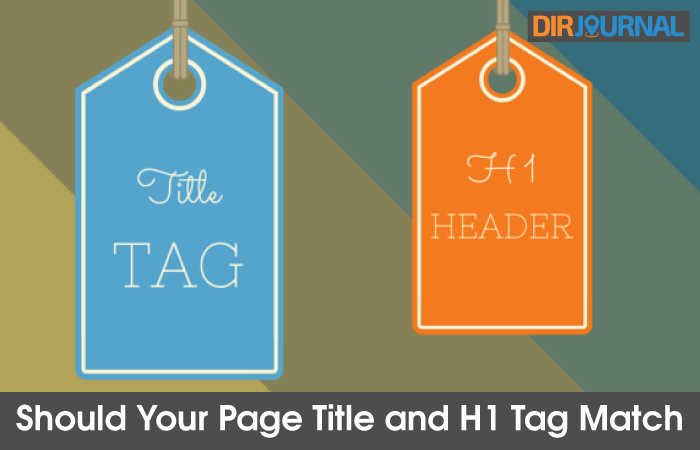Does your page title need to match your H1 tag, or can you vary them for increased SEO results?
Before we look any deeper at this subject we need to make sure we’re all talking about the same thing. Your page title is the part of the HTML code between the tags and in most browsers, is displayed in either the browser chrome area, or on the individual tab. Your H1 tag is usually displayed on the page as the name/title of the article or post.
From an SEO perspective there isn’t a penalty if your Title and H1 element are the same, however you are missing out on the opportunity to use them to target variations or alternate keywords. Let me illustrate with an example:
Title: How to Choose a Printer for Your Vista Computer
H1: How to Choose a Printer for Your Vista Computer
compared to
Title: Printers: Shopping for a Printer for Your Vista Computer / Laptop
H1: How to Choose a Printer for Your Vista Computer
Notice how by using a variation we were able to incorporate new keywords such as “shopping” and “laptop”. Additionally we were able to get the single and plural version of “printer” and “printers” into the title. Let’s try another example:
Title: Cheap Hotels in Las Vegas
H1: Cheap Hotels in Las Vegas
compared to
Title: Discount Hotels – Las Vegas Cheap Hotel Rooms
H1: Cheap Hotels in Las Vegas
Again in this case we were able to add the hotel/hotels singular and plural variations, as well as “hotel rooms” and “discount hotels”
Of course there is the temptation to go overboard with this technique and add in too many words, such as:
Title: Discount Hotels Online – Cheap Las Vegas Strip Hotel Rooms, Book Online
From a user perspective there are too many words, it looks keyword stuffed, and it isn’t very click enticing. Secondly you break the proximity and position effects. If you can get the words in the exact order of a query that’s the ideal situation, if that’s not possible you to get them next to each other with as few other words and no stop words in between (this is called positioning). In the first example the “discount hotels” and “cheap hotel” were on both sides of the words “Las Vegas” (this is known as proximity). Lastly is the length, Google will start to truncate (chop off) at 66 characters so you want to try and stay at 65 or under whenever possible.
So what are the takeaways from this post:
- Try to use different page titles and H1 tags to introduce singular and plural keywords
- Try to use different page titles and H1 tags to introduce alternate and related keywords
- Place alternate keywords around central concepts to take advantage of proximity
- Keep your page titles under 66 characters to avoid being truncated








[…] This post was mentioned on Twitter by Tom Telford. Tom Telford said: Should your H1 and Page Title tags match? http://bit.ly/fXHIr […]
Its not necessary everytime to keep the same title in meta and in H1.
Tasty morsels here. Gonna chew it up and spit out some new page titles.
Yep, good stuff indeed. Sounds like the idea is to take every opportunity to utilize keyword variations.
This one of the most straightforward blogs on the subject of Titles and H1 tag correlation I’ve ever read. I consider my self an expert in internet marketing and found new ideas.
Thanks for the info. For some reason I thought the title tag and the heading should be the same. I have thought this for years. You have opened my one good eye!
Is it beneficial to go back and change titles and/or tags?
If you pair this great article with knowledge of how to write a powerful “ad snippet” I believe you can exponentially increase traffic.
Thanks
Really nice article for h1 and page title. Very simple and straight forward.
Since first reading this article I’ve been also testing adjectives in the Title, H1 and Description. Same keywords in Title, H1 and Description, different adjectives and keyword relational positioning. Interesting results in a short period of hours.